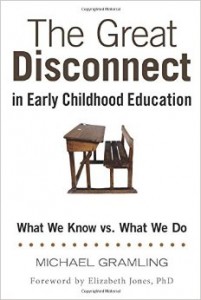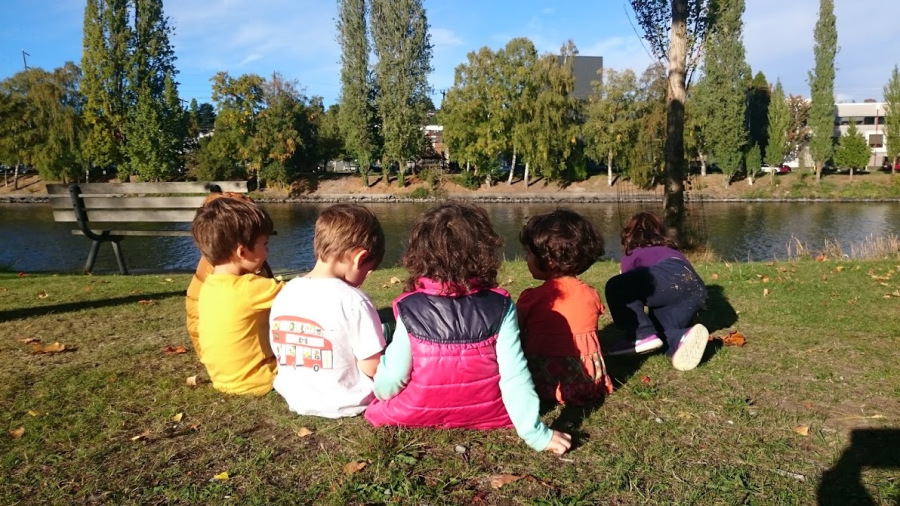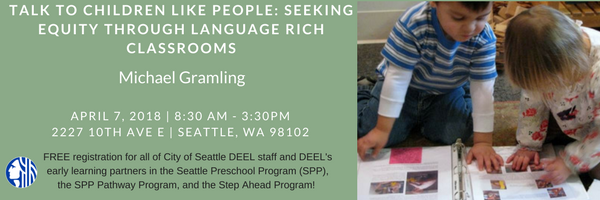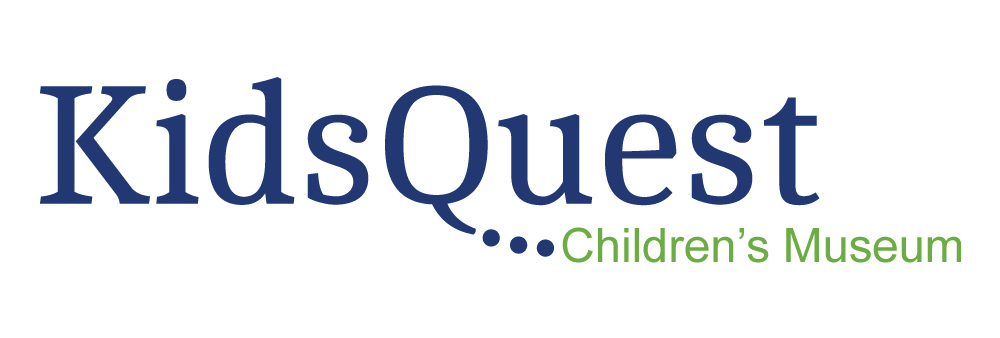by Sarah Felstiner, Curriculum Director, Hilltop Children’s Center
A recent book by Michael Gramling has been stirring up vivid conversation in the early learning community. The Great Disconnect in Early Childhood Education takes a historical and current look at the connections (and missing connections) between what research and science tell us about children’s learning and what actually happens in classrooms. “Gramling argues that ineffective practices are the result of unexamined public policies and asserts that educators need to challenge this kind of thinking in order to make a difference in children’s lives.” (Redleaf Press)
One point Gramling stresses is that publicly funded programs intended to close the opportunity/achievement gap are actually widening it. Meanwhile programs free from funding restrictions have more flexibility to develop innovative, child-centered practices, but are available only to the children and families who can afford them. Here are a couple of selections from the book, on that point:
“As the achievement gap became a national disgrace, and despite the very good evidence before them that language deficiency was the root of the problem, schools decided instead that since starting school at age five had not worked, then starting school at age four must be the solution—not for all children this time around, but for the most part, just for children in poverty…It is mostly for the benefit of these children that school readiness standards have been established and performance objectives identified and for whom decoding print has become a central objective.” (page 32)
“Because kindergarten readiness is measured by the child’s knowledge of a few facts while school success is dependent on the child’s ability to engage in complex communication, these children will fall further and further behind every year. They will learn how to decode print but not know how to use it to express their thoughts and their experiences or how to comprehend the ideas and experiences of others.” (page 73)
Gramling seems to be arguing that early childhood education should be an exercise in guiding children to better understand themselves and WHO they are, while more traditional models of education focus more on what children will need to know how to DO in the future. Gramling goes on to say that a great deal of evidence points to the critical importance of exposure to rich language during the first five years of life, yet, despite this knowledge, schools and classrooms still fails to provide rich language to children. As a result, the gap between rich and poor children in America hasn’t narrowed, as promised; it has widened. Which provokes the question…Why focus on Kindergarten readiness, when we could be seeking language equity for lifelong success?
Two years ago, in Hilltop inaugural Educator Discussion Series, we hosted a community discussion inspired by Gramling’s book. That workshop titled “Is play is an equity issue” was facilitated by Margie Carter and featured respondents from publicly funded programs in Seattle that are actively working to counter the opportunity gap.
On Saturday, April 7th, 2018, we bring Michael Gramling to Seattle for a full day workshop titled “Talk to Children Like People: Seeking Equity Through Language Rich Classrooms.” This workshop is based off of his book “The Great Disconnect” a 2017 Independent Publishers National Silver Medalist and a 2015 INDIEFAB Book of the Year Finalist. This professional development event aims to connect the standards and politics of early childhood education with developmentally appropriate practice. Together, in both small group and large group discussions, we will explore ways we can use rich language to enhance future success.
Please register here or at www.hilltopcc.com/gramling if you’d like to join us as we seek equity through language rich classrooms.
What To Expect?




